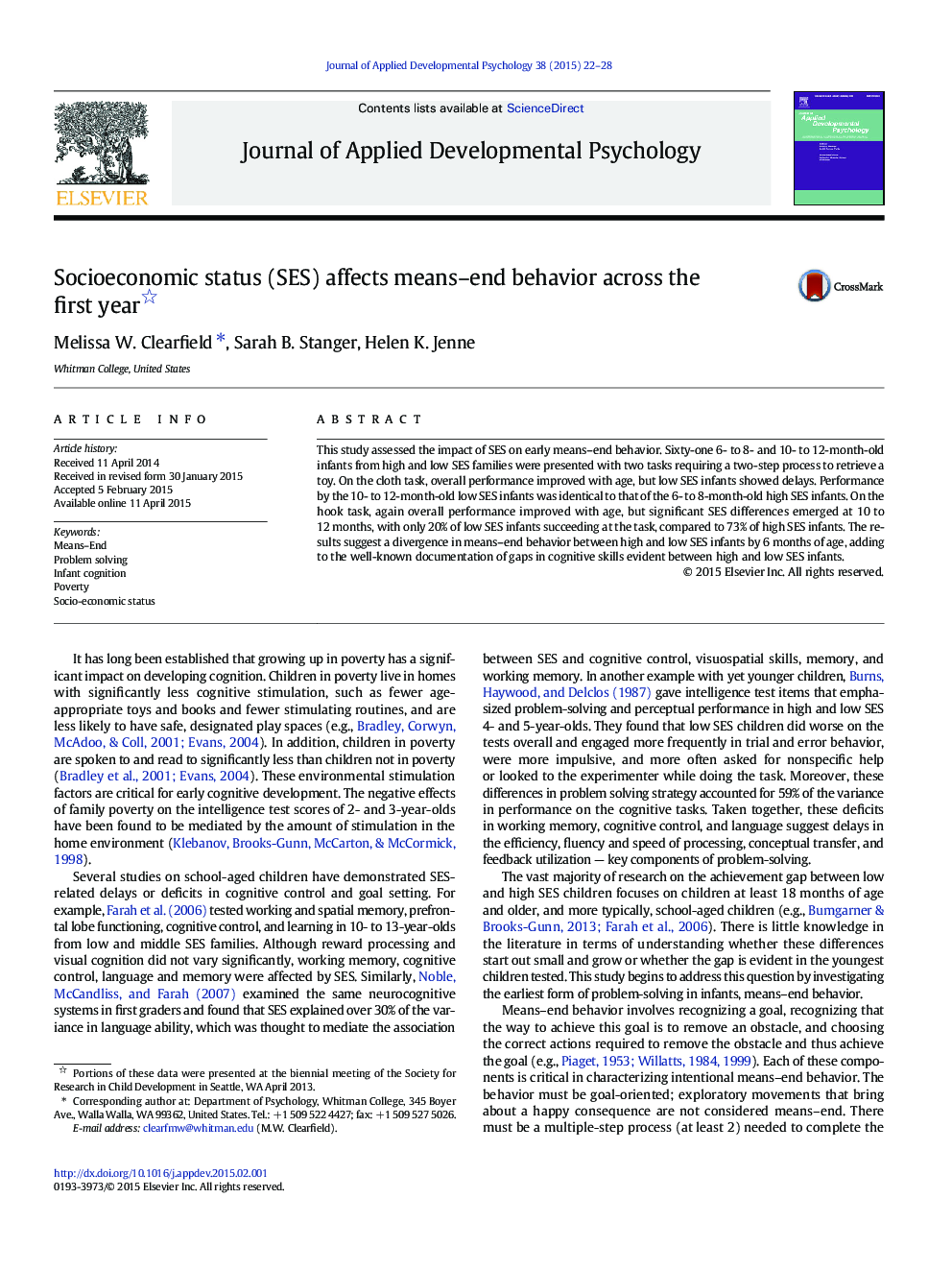| Article ID | Journal | Published Year | Pages | File Type |
|---|---|---|---|---|
| 359699 | Journal of Applied Developmental Psychology | 2015 | 7 Pages |
•This study assessed the impact of socio-economic status (SES) on early means–end behavior.•6- to 8 and 10- to 12-month-old infants from high and low SES families were presented with 2 classic means–end tasks.•Low SES infants performed significantly worse on both tasks.•The well-documented cognitive achievement gap in low SES children begins by 6 months of age.
This study assessed the impact of SES on early means–end behavior. Sixty-one 6- to 8- and 10- to 12-month-old infants from high and low SES families were presented with two tasks requiring a two-step process to retrieve a toy. On the cloth task, overall performance improved with age, but low SES infants showed delays. Performance by the 10- to 12-month-old low SES infants was identical to that of the 6- to 8-month-old high SES infants. On the hook task, again overall performance improved with age, but significant SES differences emerged at 10 to 12 months, with only 20% of low SES infants succeeding at the task, compared to 73% of high SES infants. The results suggest a divergence in means–end behavior between high and low SES infants by 6 months of age, adding to the well-known documentation of gaps in cognitive skills evident between high and low SES infants.
